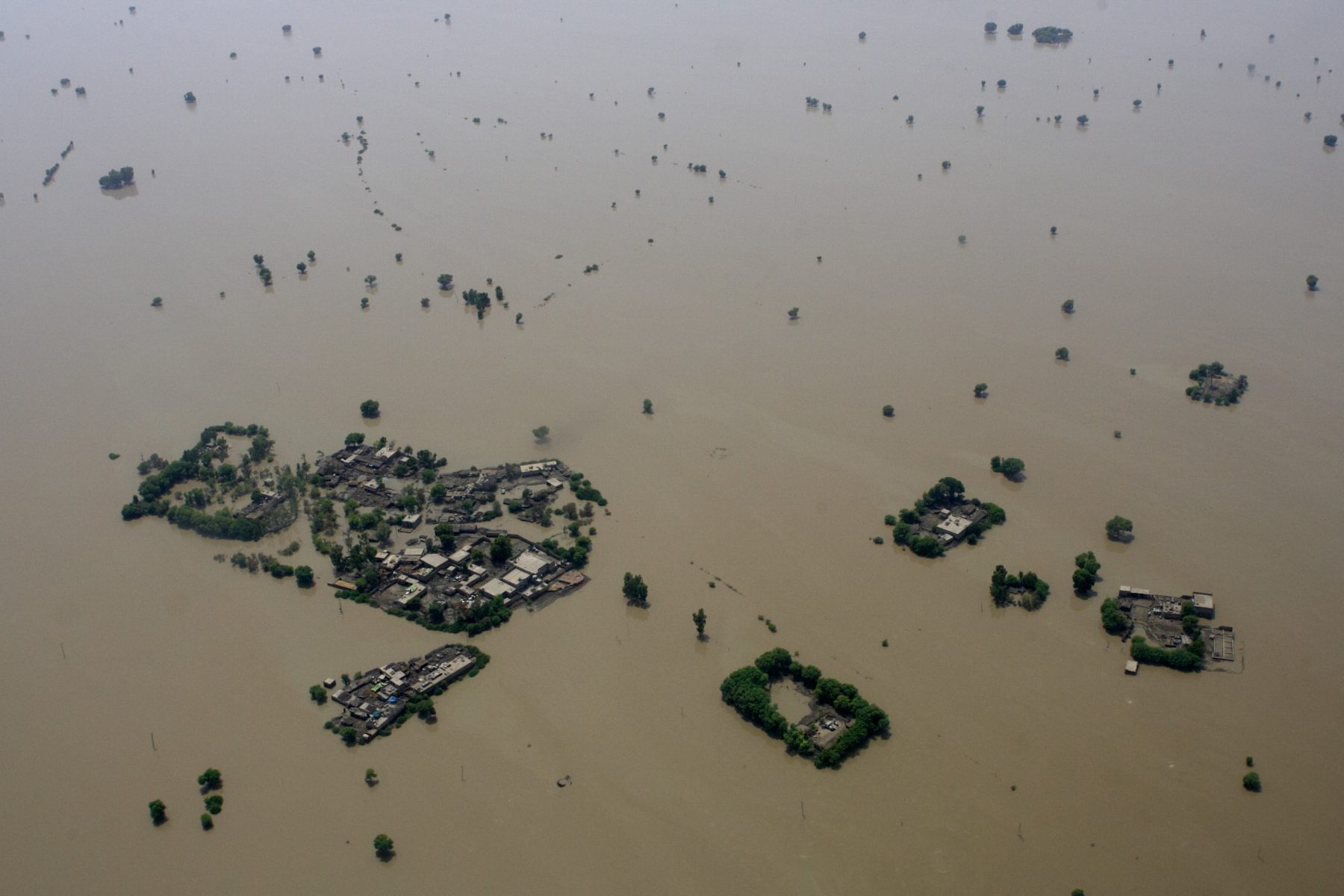In the popular imagination, global climate change is often portrayed as a force that brings with it chaotic, violent human responses. Societies are thrown into disarray. Countries go to war over water or food shortages. To many people, the prospect of global warming is apocalyptic. But what will actually happen?
The scientific debate over the existence of global climate change is, for all practical purposes, over. Climate scientists continue to debate the severity of the expected temperature changes, readjusting models and analyzing new information as it arrives, while political scientists study the effects it will have on humans. But in many ways, the public remains unconvinced. The Yale Project on Climate Change Communication reported last year that while 70% of Americans believed in climate change, less than half believed that it was already having adverse effects on humans. Just over half, meanwhile, indicated that they were “somewhat” or “very” worried about future effects.
One question that has been the subject of extensive debate is whether there is a link between rising temperatures and violent conflict. Speculation about water wars is one thing, but is there actually a body of evidence suggesting that this threat is real? For political scientists, the answer has long proved elusive. But a new study by Solomon Hsiang, Marshall Burke, and Edward Miguel claims to be the strongest evidence yet of a direct link between climate change and increasing violence.
In the study, the three scientists took an approach designed to encompass as diverse a selection of conditions as possible. To do this, they used information from dozens of different studies – looking at data from across the world and stretching back to 10,000 B.C.E. While many scientific studies simply use one method to measure variables, this one embraced the idea of comparing across disciplines – looking at data on subjects as diverse as global terrorism in the twentieth century and dynastic changes in ancient China.
What they found was striking. Deviations from the average in temperature, whether higher or lower, have reliably correlated with increased violence. The same holds true for levels of rainfall. On average, a change of one standard deviation in temperature or rainfall increased the likelihood of interpersonal violence (think murder, rape, assault, etc.) by 4%. Intergroup conflict – like terrorism or war – becomes 14% more likely.
Marc Scarcelli, a Visiting Assistant Professor in the Government and Legal Studies Department, studies international conflicts. “This study is significant as it is one of very few large, quantitative studies to show evidence of a causal relationship,” he said. Qualitative researchers tend to already be convinced of a causal link between climate change and violence. For quantitative researchers, though, the study “represents an important expansion in the scholarly evidence supporting such a causal link.”
These results help to quantify a perception that many studying conflict have long had – that global warming has the potential to seriously exacerbate violent conflict. Given that climate scientists expect temperature to rise between two and four standard deviations by 2050, those percentages, which may seem small at first glance, prove to be quite significant.
Interestingly, the results in the study also held true across the world. In general, climate change is expected to impact poor countries, many of which are located in tropical areas. However, when it comes to violent conflict, wealthy countries saw the same increases as poor ones.
While this study may help to settle some debates within academia, Scarcelli emphasized that more research still has to be done. “To ask whether global warming causes violence, one must examine a longer causal chain in which global warming causes environmental problems which in turn cause conflict,” he said. “While the Hsiang et al study is still interesting and important, its focus on rainfall and temperatures does not encompass all of the possible causal pathways between climate and conflict.”
Indeed, no one study, no matter how comprehensive, can encompass all of the aspects of such a large question. And it is harder still for an academic study to impact public opinion or policy. “I wish I could say that stronger evidence will spur more serious action to combat climate change, but I doubt that it will,” said Scarcelli. He pointed out that many significant policymakers, like President Barack Obama and U.N. Secretary General Ban Ki Moon, were already satisfied with the existing qualitative evidence on the subject.
It seems unlikely, then, that a study like this will have immediate, noticeable effects outside the world of academia. But it does begin to fill in a huge gap in the research that has hindered those trying to argue for the significance of global climate change. As more and more quantitative evidence emerges for a link between climate change and human violence, defending a path of inaction will become significantly harder.




